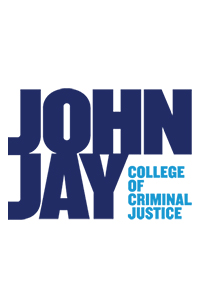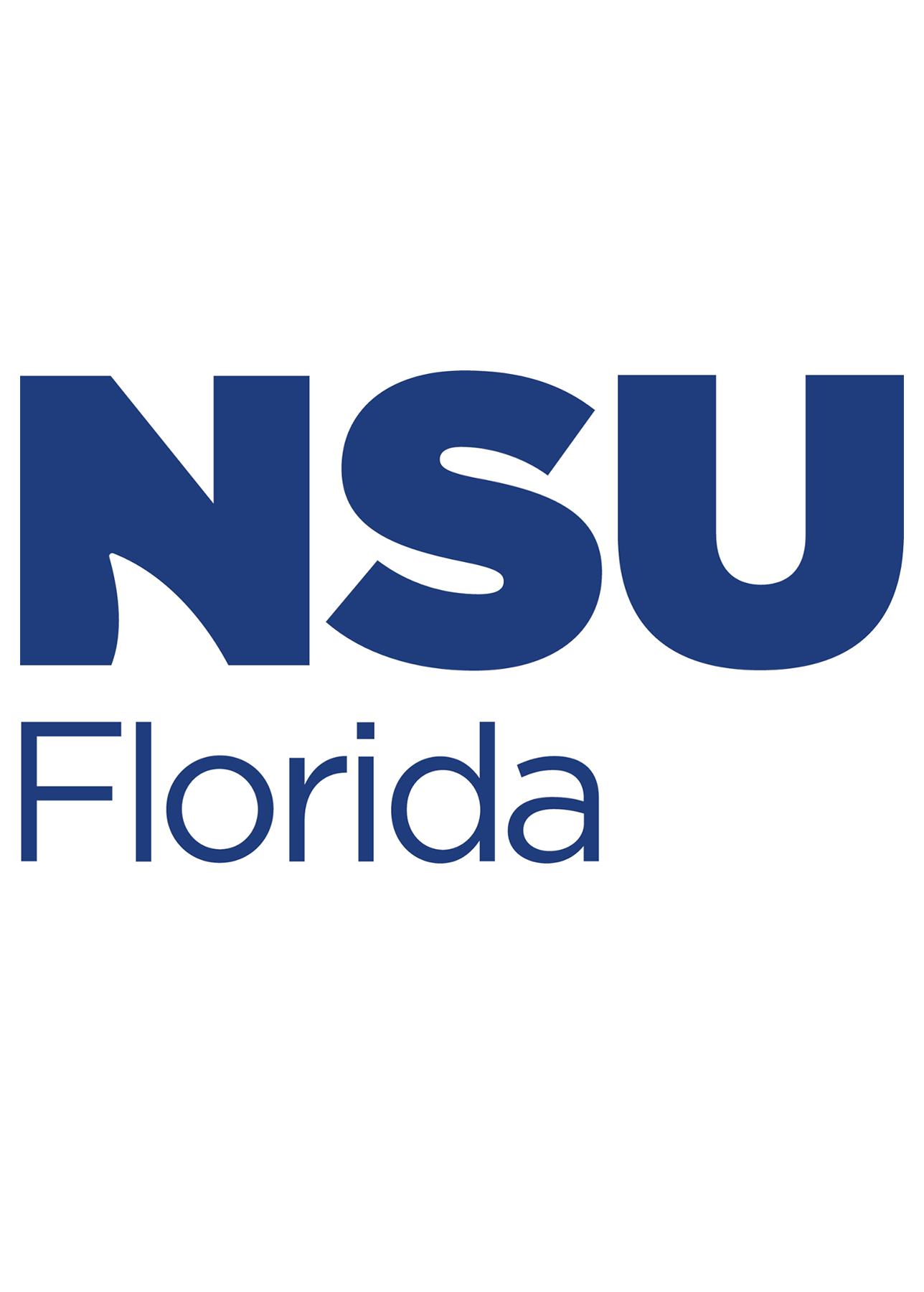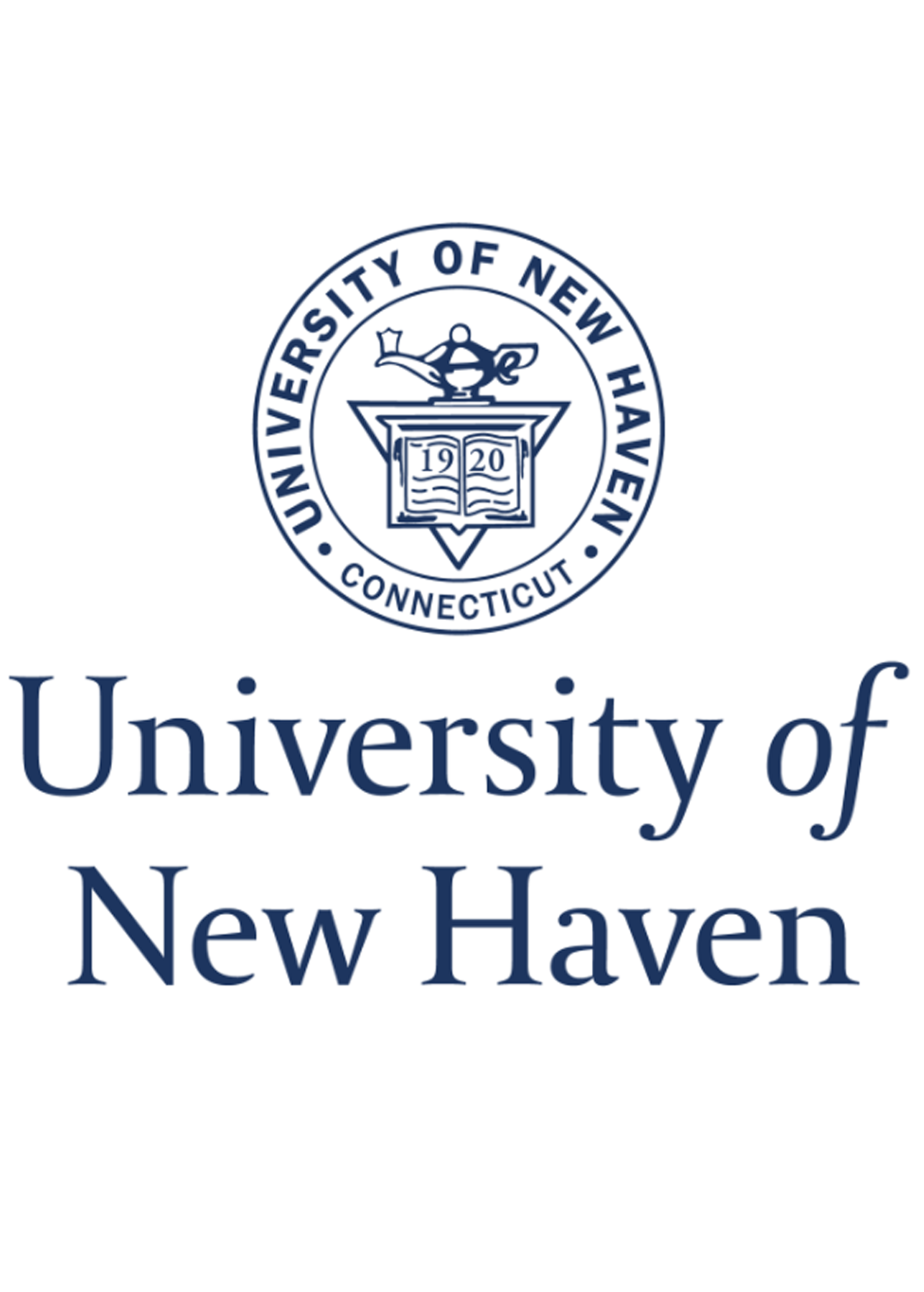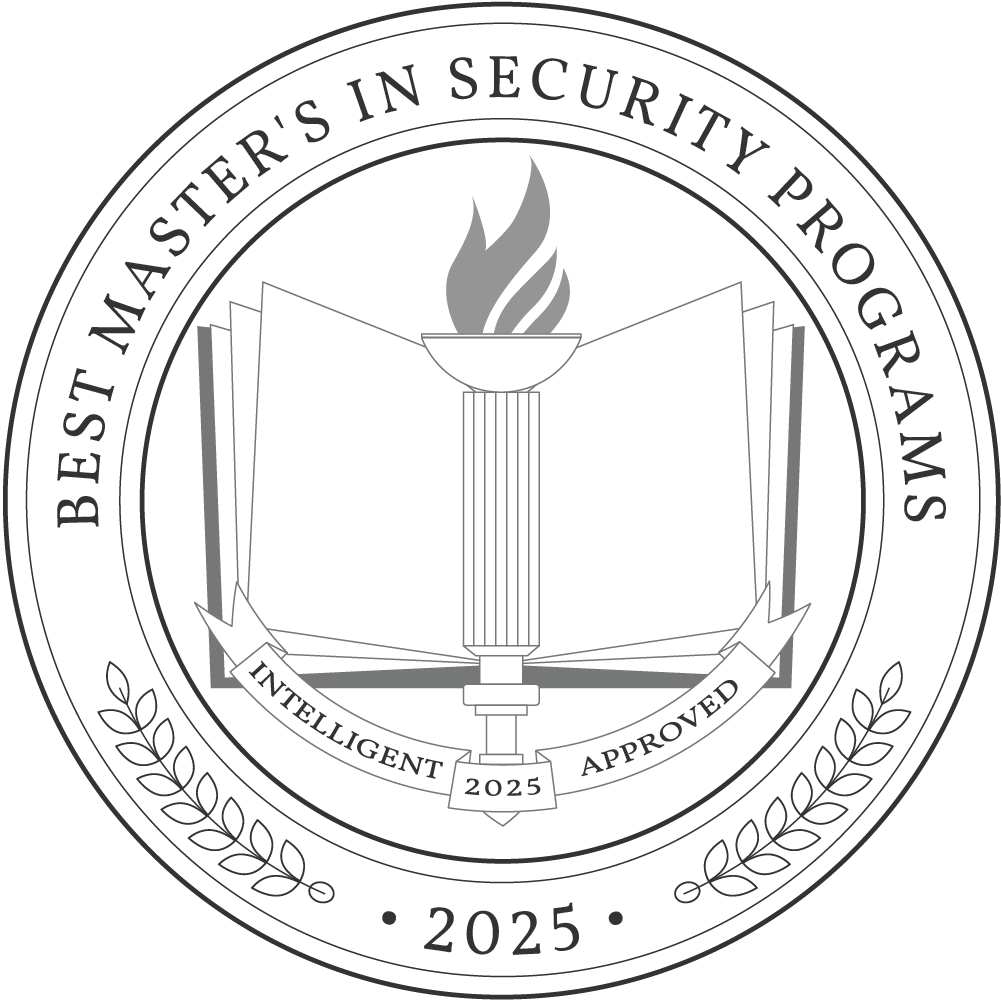Designed for students with a bachelor’s degree in a relevant field who are eager to gain advanced skills in protecting organizations and individuals from in-person and cyber threats, a master’s in security will prepare you for several potential career paths. This may include options such as becoming an Information Security Analyst with a median salary of $120,360 or pursuing a career with the U.S. Department of Homeland Security, which employs over 260,000 people.
Most master’s in security programs can be completed within 18 months to two years, depending on whether you enroll full-time or part-time. The average tuition for these programs was $19,749 for the 2020-2021 academic year, making it a significant but worthwhile investment in your professional future.
Why Trust Us
The Intelligent.com Higher Education Team is dedicated to providing students with independent, equitable school and program rankings and well-researched resources. Our expert-driven articles cover topics related to online colleges and programs, paying for school, and career outlooks. We use data from the U.S. Department of Education’s College Scorecard, the National Center for Education Statistics, and other reputable educational and professional organizations. Our academic advisory team reviews content and verifies accuracy throughout the year for the most current information. Partnerships do not influence rankings or editorial decisions.
- Analyzed over 2,000 national, accredited, and nonprofit colleges and universities
- 800+ rankings pages are reviewed and updated yearly
- Content is informed by reputable sources, surveys, and interviews with academic advisors and other experts
- Over 100 data points are reviewed for accuracy and quality throughout the year, including sources
How we rank schools
Our list features the best Security degree programs at top colleges nationwide. Each school featured is a nonprofit, accredited institution — either public or private — with a high standard of academic quality for post-secondary institutions.
We evaluated each school’s program on tuition costs, admission, retention and graduation rates, faculty, reputation, and the student resources provided for online students. We collected data from trusted sources like the National Center for Education Statistics, individual school and program websites, school admissions counselors, and other data sources. Then, we calculated the Intelligent Score on a scale of 0 to 100 based on the following criterion:
Academic Quality:
- Admission rate versus enrollment rate
- Retention rate of students who return after year one
- Accreditation status (regional and programmatic)
- Nonprofit status, both private and public institutions
Graduation Rate
- Overall graduation rate
- Total number of currently enrolled students, including diversity metrics
- Student-to-faculty ratio
Cost and ROI
- In-state and out-of-state per-credit tuition rates and fees
- Required credits to graduate
- Earning potential after graduation
- Availability of federal student loans, scholarships, and other financial aid options
Student Resources
- Available student services for online-only and hybrid programs
- On-campus amenities like tutoring centers and the number of libraries
Read more about our ranking methodology.
Best 13 Accredited Master’s in Security Programs
FiltersInstitution Type
Status
- Intelligent Score
- Alphabetically By University Name
- Acceptance Rate
- Enrollment
- In-state Graduate Tuition
- Out-of-state Graduate Tuition
- In-state Undergraduate Tuition
- Out-of-state Undergraduate Tuition

The University of Texas at Austin
Intelligent Score: 98.16In-state: $11,448
Out-of-state: $40,032
In-state: $12,028
Out-of-state: $12,028
SAT: 1210-1470
ACT: 26-33
$1,500
On-Campus
Southern Association of Colleges and Schools Commission on Colleges
30

East Carolina University
Intelligent Score: 97.58In-state: $4,452
Out-of-state: $20,729
In-state: $4,749
Out-of-state: $4,749
SAT: 1020-1170
ACT: 19-24
Resident: $425
Non-Resident: $1,155
On-Campus, Online
Southern Association of Colleges and Schools Commission on Colleges
36

Johns Hopkins University
Intelligent Score: 97.33In-state: $54,160
Out-of-state: $54,160
In-state: $57,010
Out-of-state: $57,010
SAT: 1470-1560
ACT: 34-36
$1,566 - $1,633
On-Campus, Online
Middle States Commission on Higher Education
36

University of Denver
Intelligent Score: 97.06In-state: $52,596
Out-of-state: $52,596
In-state: $52,596
Out-of-state: $52,596
SAT: 1170-1360
ACT: 26-31
$834
On-Campus
Higher Learning Commission
48-60

John Jay College
Intelligent Score: 95.51In-state: $32,657
Out-of-state: $40,607
In-state: $40,813
Out-of-state: $40,813
SAT: 920-1060
ACT: 17-21
Resident: $470
Non-Resident: $855
On-Campus, Online
Middle States Commission on Higher Education
36

University of Massachusetts Lowell
Intelligent Score: 94.5In-state: $15,791
Out-of-state: $35,779
In-state: $14,014
Out-of-state: $14,014
SAT: 1200-1390
ACT: 27-32
In-State: $851
Out-of-State: $1,539
On-Campus, Online
New England Commission of Higher Education
30

Northeastern University
Intelligent Score: 93.61In-state: $54,360
Out-of-state: $54,360
In-state: $25,264
Out-of-state: $25,264
SAT: 1410-1540
ACT: 33-35
$850
On-Campus
New England Commission of Higher Education
45

Nova Southeastern University
Intelligent Score: 93.51In-state: $32,370
Out-of-state: $32,370
In-state: $20,618
Out-of-state: $20,618
SAT: 1030-1240
ACT: 20-27
$830
On-Campus, Online
Southern Association of Colleges and Schools Commission on Colleges
36

Webster University
Intelligent Score: 88.87In-state: $28,500
Out-of-state: $28,500
In-state: $13,500
Out-of-state: $13,500
SAT: 1078-1260
ACT: 20-27
$752
On-Campus, Online
Higher Learning Commission
36

Embry-Riddle Aeronautical University-Worldwide
Intelligent Score: 88.57In-state: $36,456
Out-of-state: $36,456
In-state: $18,228
Out-of-state: $18,228
SAT: 1140-1320
ACT: 23-29
$836
On-Campus
Southern Association of Colleges and Schools Commission on Colleges
36

University of New Haven
Intelligent Score: 88.20In-state: $40,170
Out-of-state: $40,170
In-state: $17,370
Out-of-state: $17,370
SAT: 1050-1220
ACT: 22-28
$1,055
On-Campus
New England Commission of Higher Education
30-36

Regent University
Intelligent Score: 87.52In-state: $17,220
Out-of-state: $17,220
In-state: $15,552
Out-of-state: $15,552
SAT: 940-1220
ACT: 21-29
$695
On-Campus, Online
Southern Association of Colleges and Schools Commission on Colleges
36-38

The George Washington University
Intelligent Score: 85.89In-state: $55,961
Out-of-state: $55,961
In-state: $31,770
Out-of-state: $31,770
SAT: 1270-1450
ACT: 30-33
$2,095
On-Campus, Online, Hybrid
Middle States Commission on Higher Education
36
How to Choose a Master’s in Security Program
Choose your area of study
The first step in choosing a master’s in security program is deciding on a specialization that aligns with your career goals and interests. Potential paths include cybersecurity, which is ideal for those interested in protecting digital infrastructure, and homeland security, which is suited for individuals aiming to work in disaster response and anti-terrorism. Some programs may offer a specialization in corporate security, which focuses on safeguarding business assets and information.
Each specialization tailors its curriculum to prepare graduates for specific challenges and roles within the broad field of security. By selecting a concentration that matches your aspirations, you’ll also gain a focused education that will prepare you with the necessary skills to excel in your chosen area.
Research schools and programs
After selecting a specialization, you can begin researching schools and programs that align with your focus and can advance your career. Consider using the following questions to guide your research:
- Does the program offer courses specific to my chosen specialization?
- What are the faculty’s credentials, and how relevant is their industry experience to my future career?
- How well do the program’s alumni succeed in this field?
- Are there opportunities for internships and practical experience?
You can find information on program specifics, faculty, and alumni success on university websites, through information sessions, or by contacting an admissions counselor.
Prepare for tests and applications
Now that you’ve shortlisted your preferred schools, it’s time to prepare for tests and applications. Begin by requesting transcripts and letters of recommendation early, as these can take time to gather and are crucial for your application. You’ll want to dedicate sufficient time to write your personal statement, reflecting your goals and overall fit for the program. If the GRE is required, consider enrolling in a test prep program to boost your scores.
Select your program
After receiving acceptance letters, revisit your initial research criteria to choose the right master’s in security program. Focus on what’s most important — be it the faculty you’ll learn from, curriculum relevance, or networking opportunities. Carefully consider the overall cost of attendance and explore financial aid opportunities, including scholarships and assistantships, to make an informed decision that balances educational benefits with economic feasibility.
Determine how you’ll pay for your degree
Financing your degree without incurring substantial debt may seem impossible, but many financial aid resources are available.
Start by looking into scholarships and grants, as these don’t need to be repaid and can significantly offset education expenses. In addition, many universities offer teaching or research assistant positions, typically including tuition waivers and a stipend.
If you’re currently employed, ask whether your employer offers tuition reimbursement for continued education — especially if your degree is relevant to your field.
Lastly, federal loans can be used to bridge any remaining financial gaps — but it’s important to avoid relying on these too heavily, as all loans will eventually have to be repaid with interest.
What Can You Expect From a Master’s in Security Program?
A relatively new degree path, a master’s in security allows students to tackle both physical and cyber threats, protecting government and corporate assets. The most innovative curriculums combine theory with practical application, covering risk assessment, emergency response, and the latest in cybersecurity measures.
While studying, you’ll learn to develop, implement, and manage security protocols that address the challenges in today’s threat landscape. Most coursework can be completed remotely, but it’s important to note that some programs might require in-person attendance for specific components, especially those conducted online.
These programs can be completed in 18 months to two years, depending on your pace of study and the program’s structure.
Potential courses you’ll take in a master’s in security program
- Cybersecurity Fundamentals: Considered a cornerstone in most curriculums, this class provides a comprehensive overview of the critical concepts in cybersecurity, including threat analysis, encryption, and secure software design. Students will learn how to identify vulnerabilities and implement security measures to protect information systems against cyber threats.
- Risk Management and Analysis: Another common core requirement, this course delves into strategies for assessing and mitigating risks associated with both physical and cyber threats. The syllabus often covers various methods for risk evaluation while emphasizing how to create effective risk management policies to improve organizational security.
- Counterterrorism Strategies: Often offered as an elective, this course focuses on counterterrorism measures and policies from a global perspective, including analyzing historical and contemporary terrorist threats and the effectiveness of different counterstrategies.
- Digital Forensics: This elective explores techniques for gathering and analyzing electronic data for security purposes. Students learn about the tools and methods for forensic examination of digital devices and networks, which is crucial for investigating cybercrimes and enforcing network security.
Master’s in Security Degree Frequently Asked Questions
How do I apply to a master's in security degree program?
To apply for these programs, start by reviewing the specific requirements of your chosen institution, as they can vary. However, many programs share common criteria, including:
- Bachelor’s degree from an accredited institution
- Official transcripts
- Letters of recommendation
- Statement of purpose
- Relevant work experience
- GRE scores, if required
Speaking with an admissions counselor before applying is essential, as they can help you understand the specific requirements and application process for your intended program.
How much does a master's in security degree cost?
The average cost of a master’s in security degree was $19,749 for the 2020-2021 academic year. However, costs vary widely based on factors such as whether the institution is public or private, the program’s reputation, and your residency status.
Beyond tuition, you should also budget for expenses like textbooks, technology fees, commuting, housing, and potentially lost income. It’s important to factor in these extra costs to fully understand the overall financial commitment.
How long does it take to earn a master's in security degree?
Earning this degree takes 18 months to two years for full-time students. Part-time students might take longer, often three to four years, as they balance coursework with other responsibilities.
When calculating these timelines, it’s essential to note your intended program’s number of required credits, as this will directly influence how long it takes you to complete your degree. Most programs range from 32 to 45 credits, but some may require more or less.

